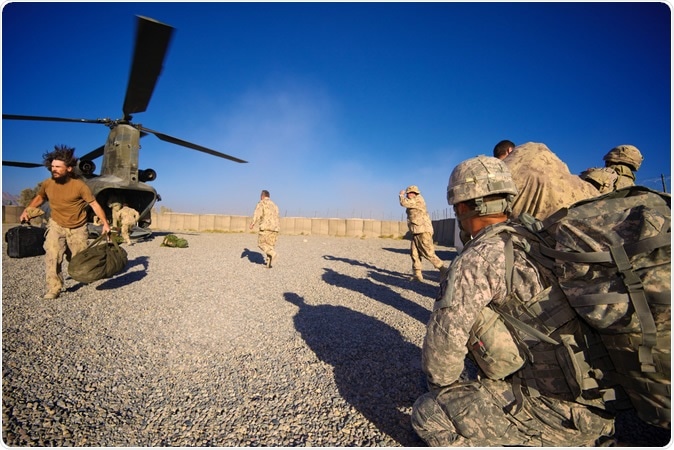Almost 12% of the American soldiers posted in Afghanistan have had suicidal thoughts at least once in their lives. More to the point, 3% thought of suicide at least once over the past year, and almost 2% over the last month, according to the questionnaires filled in by a sample of soldiers midway through their stay in that country, in 2012. The rate of suicide is much higher among soldiers in combat compare to those who were never deployed.
The presence of suicidal ideas is a risk factor for suicidal behavior and shows that the individual is seriously distressed. It should be taken as a chance to intervene. However, it is unlikely that the prevalence of mental health issues represented by the administrative records is accurate since it is difficult for soldiers on active combat duty to seek treatment for such disorders and the difficulty of maintaining medical records in the war zone. This was the reason for the current survey method.
Suicidal ideas are known to be linked to risk factors like being female, younger, entering service at a higher age, sexual trauma in service, and poor childhood experiences, as well as exposure to combat. A new study published in JAMA Network Open is unique in its assessment of soldiers' self-reported suicidal ideation and mental health disorders at the midpoint of deployment, a period when risk for suicide attempts appears to peak.

Kandahar, Afghanistan. Image Credit: Nate Derrick / Shutterstock
The study
The researchers distributed a questionnaire to about 4,000 soldiers out of the over 87,000 American troops posted in Afghanistan. The number was adjusted to provide a representative picture of the whole group. 87.5% were male, and about 53% were 29 years or less.
They then carried out an observational study based on the questionnaires, to understand more about the prevalence of suicidal ideas and mental illness over the period of deployment in a combat zone, as well as to find out what risk factors were linked to this. The analysis was performed in August 2018 to August 2019.
The findings
The risk factors identified included white race, a history of trauma not associated with military combat, and a history of major depression in the past.
About 44% had major depression, and 19% had post-traumatic stress disorder (PTSD) in the past month. The odds of having suicidal thoughts were 3 times higher for whites, twice as high for a history of noncombat trauma, and almost 32 times higher for people with major depression in the last 30 days. If the major depression had occurred more than a month before the survey date, the odds were 5 times more.
85 soldiers said they had had suicidal thoughts in the last 30 days, and on follow up over the next 12 months, after returning from deployment, 44% had tried to commit suicide. 5 of them (6%) were documented to have attempted suicide, or 6%. This is in contrast to 0.14% of participants without such ideas.
The study depends upon self-reported data, and the findings may not be widely applicable to other groups of soldiers or to civilians. All the same, the presence of major depression and trauma outside the battle zone should prompt a watch for suicidal thoughts during deployment for combat.
Journal reference:
Ursano RJ, Herberman Mash HB, Kessler RC, et al. Factors Associated With Suicide Ideation in US Army Soldiers During Deployment in Afghanistan. JAMA Netw Open. 2020;3(1):e1919935. doi:10.1001/jamanetworkopen.2019.19935